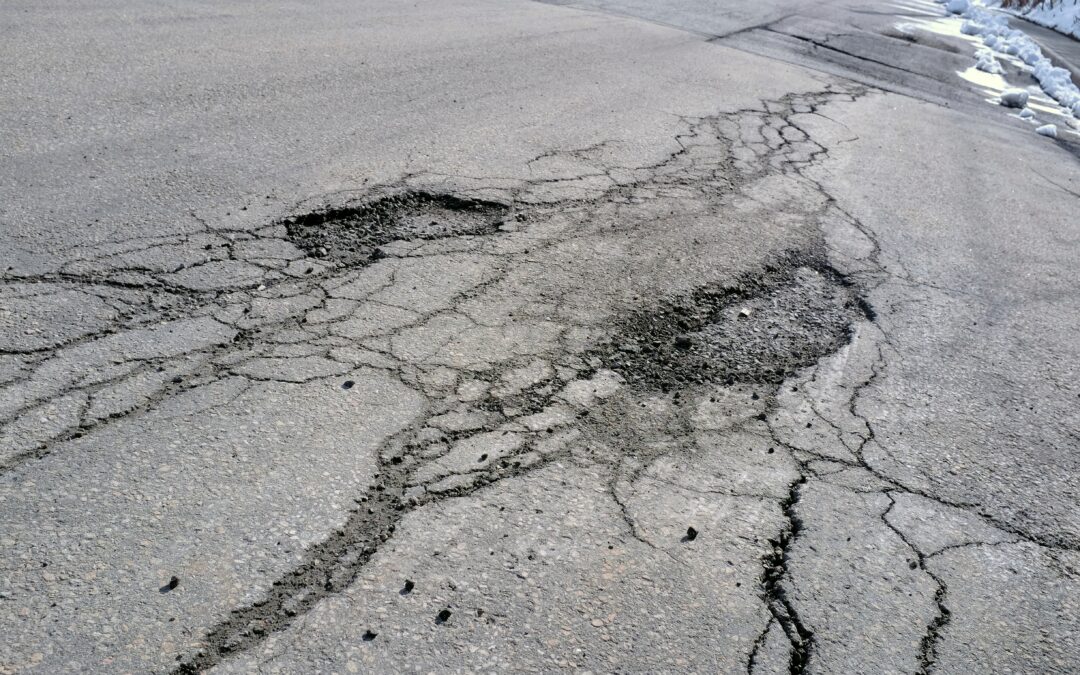Read the full story by Chad Livengood in the Detroit News here.
Canton Township — Ann McGowan still feels embarrassed by the condition of her suburban street when she hosted her son and daughter’s high school graduation parties a few years ago.
To navigate their pockmarked road built in the late 1980s, McGowan and her neighbors in Canton Township’s sprawling 1,700-home Sunflower subdivision had gotten into the habit of sweeping up the gravel flaking off from Swanmere Drive, a task they dubbed “the Swanmere game.”
The road conditions were so bad that rollerblading became hazardous for neighborhood kids. Cars had to creep along at a snail’s pace or risk getting a tire chewed up. And a snowplow driver bent his truck frame after the plow scraped up a heavy chunk of concrete that had busted loose from the street bed, neighbors said.
“You couldn’t even straddle the potholes anymore because the potholes had potholes,” McGowan said. “… And instead of enjoying the graduation party … everybody’s talking about our roads. It was embarrassing.”
Swanmere Drive is typical of any subdivision road in a populous community across Metro Detroit — a street built by a real estate developer a generation or two ago with almost no plan for how to someday replace it.
“It would have been nicer to go back to gravel because you can grade that,” McGowan said.
But instead of going back to gravel, Swanmere Drive got ripped out and rebuilt last summer — a brand new street paid for, in part, by a township millage dedicated to infrastructure.
Communities like Canton Township in recent years have taken Michigan’s road funding crisis into their own hands. They’ve stopped waiting around for an elusive solution from Lansing to fix some “damned roads” and just went ahead and voted to raise their own taxes.
“If you want your roads fixed, you gotta pay for it,” said Khalil Kandah, a Sunflower resident who, like McGowan, serves on the neighborhood homeowners association board.
Because of Michigan’s arcane road-funding formula, charter townships like Canton Township — population 98,000 — don’t get direct state funding for roads, unlike a similar size city such as Livonia — population 92,000 — or even a small city like Rockwood, which has about 3,200 inhabitants.
This is a public policy that goes back to the Truman administration that predates the construction of freeways in this state. Residents in Canton Township, after years of complaining about their disintegrating roads, understand this as well as anyone in Metro Detroit.

